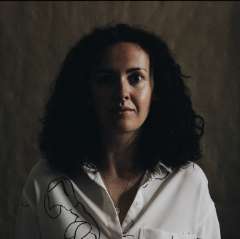While some opera houses had to cancel or postpone new productions and premieres of their Ring cycles due to the pandemic and ever-looming lockdowns – such as the Ring in Paris, where it was initially abandoned after the preliminary evening, later given in concert performances, but has yet to be staged in its entirety, or Herheim’s Ring at the neighbouring Deutsche Oper Berlin, which was shown completely, but had to be staged in a different order – Dmitri Tcherniakov’s Ring for Berliner Staatsoper appears to be above everything and cleared all Covid-related obstacles. All but one: Daniel Barenboim, who insisted on conducting the new Ring on the occasion of his 80th birthday, eventually had to pass the baton due to health issues. With Christian Thielemann, the opera house has found a worthy substitute for at least two of the three cycles scheduled to lead the illustrious cast. Thielemann, who already conducted Wagner at the Deutsche Oper 30 years ago and led his first Ring des Nibelungen as then newly appointed musical director, comes to highly symbolic full circle with this performance.
The projector in the semi-circular auditorium reminiscent of an anatomical theatre shows the blueprint for a megalomaniac Valhalla. Tcherniakov’s set is equally ambitious: countless floors and continuously newly revealed rooms allowing glimpses into this Ring world. We are within the research centre E.S.C.H.E. – an acronym in which one “E” is bound to stand for the “experiment” that Alberich, as a man corruptible for the fascination of gold, is part of. Attached to machines by means of wires and observed by numerous doctors, he is subjected to an experiment in which he is led into temptation not only in an erotic sense, but also by the riches and power of the Rhine gold. Yet the experiment goes well and truly awry; in a rage, he frees himself, vandalises the laboratory and scarpers with the treasure, a few wires and circuit boards tucked under his arm.
This scene is inspired by the 19th century as the cradle of countless scientific, technical and medical achievements, as well as a budding interest in psychology, spiritism as ground for charlatanry and false doctrines. Add to that 19th-century examinations of the psychological profiles and histories of criminals in order to figure out what makes a person a (potential) perpetrator. The reasons behind mental and moral divergence were studied by Karl Philipp Moritz in his Experimental-Seelenlehre [English title: Prospect of an Experimental Psychology] to see if these deviations are caused externally, or if they are part of human nature. Here, Alberich is the victim.
Aesthetically, Tcherniakov’s staging looks too much as if a Russian director puts on a production in a (formerly) eastern German opera house: marble and wood-panelled rooms decorated with busts of sovereigns, heavy, dark furniture in an interior clearly affected by the ravages of time and seemingly haunted by the ghost of Erich Mileke… In Wotan’s office, the men drink cognac, smoke plenty and arrange all business and contracts amongst themselves. Elena Zaysteva’s costumes are similarly characterised by a certain charm of times gone by: Loge wearing a mustard velvet suit, Fafner in a brown leather coat and Wotan in a caramel-coloured jacket catch the eye with colour.
Despite the visually impressive set, Christian Thielemann and the Staatskapelle Berlin were the centre of attention. They offered a very slow, but always finely accentuated reading. The 136 bars of the prelude, slowly unfolding and swelling, were already very reserved, but revealed new colour and detail and prepared for things to come. In this Rheingold, Thielemann mastered the art of nuance and varied interpretation like no other, and without having to bank on exaggeration. He often reined in the musicians with subtle piano passages, thus giving the singers more room to elaborate. Supported by the slower pace, Johannes Martin Kränzle and Michael Volle particularly made use of this space and depicted their characters in a way that had the audience hang on their every word.
Volle shone with his distinctive voice, which he used captivatingly in a declamatory fashion akin to a Lied interpretation in order to develop his narrative. And Kränzle’s Alberich, a failed lab experiment mutating into a monster a la Frankenstein, depicted the role, consequent and hauntingly convincing, with his clear yet intense baritone.
Next to these experienced Wagner singers, Rolando Villazón’s role debut as Loge stuck out. The Mexican tenor, director and presenter portrayed a charming as well as smarmily overdrawn fire god and essentially just played himself. His many gestures seemed fidgety, and a stage hog demeanour couldn’t cover up vocal shortcomings. He, too, enjoyed the advantages of a slower reading and shone with clear diction and dry tenor, until he later gradually succumbed to the high demands of the role, sang less elaborately, and had to interpret more freely.
Das Rheingold is an ensemble piece, and tonight it thrived on the top performances in the smaller roles – Anna Kissjudit as ethereal, vocally pretty Erda, Mika Kares and Peter Rose as powerful giants and Claudia Mahnke as a model Fricka with brilliantly trenchant mezzo.
This Rheingold opens the new Berlin Ring with many interesting approaches, but I couldn’t shake the feeling that Tcherniakov is yet to reveal many of his ideas; he’s saving them, thus adding to the appeal of the production. Whether or not his Ring experiment will be successful can probably only determined after 16 hours. Musically, however, Christian Thielemann and the Staatskapelle Berlin have already decided: this Ring is a resounding success!
Translated from German by Hedy Mühleck.




